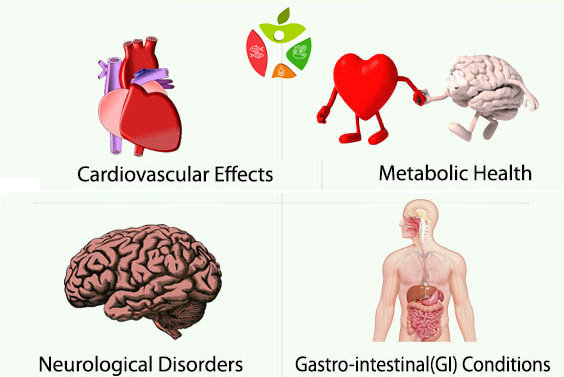Effects of Excessive use of Tea and Coffee
Tea and Coffee are two of the most widely consumed beverages worldwide. Many scientific researches have been conducted to examine the relationship between tea-coffee and various chronic diseases and health outcomes, such as cardiometabolic risk, liver disorders, various cancers, gastro intestinal conditions and neurological conditions. These effects could be attributed to the various bioactive constituents found both in tea as well as coffee, which are polyphenols, tannins, flavonoids, caffeine, chlorogenic acids, and other phenolic compounds, some of these may have addictive effects. Although, some studies have reported some beneficial effects of tea and coffee consumption also.
Let us, then examine the good or the bad effects of tea and coffee consumption and if there is a safe limit:
Cardiovascular Effects: Coffee consumption has been associated with raised blood pressure/hypertension due to its effect in increasing adrenalin secretion in the body. Heavy coffee consumption has also been seen to be at a higher risk of Cardiovascular disease due to its vasopressor effects.
However, black/ green tea consumption has been associated with a reduced risk of stroke and reduced blood pressure as both the black and green tea cause the arteries to relax, which effect is blunted by the addition of milk to tea.
Metabolic Health: Moderate to low coffee consumption has been seen to be associated with decreased blood sugar and cholesterol levels. Moderate coffee intake can lead to low energy intake as it increases satiety and thus reducing body fat. Black and green tea also improve insulin sensitivity, thus improving overall metabolic health. Long term consumption of black/ green tea has been reported to cause decrease in the blood cholesterol levels.
Intake of very high amount of both tea and coffee, especially, instant tea/coffee, with excess of sugar and milk/creamer have been seen to have adverse effects on metabolic health according to studies conducted by some Korean Scientists.
Neurological Disorders: Caffeinated drinks, such as coffee, tea, carbonated beverages and energy drinks have a positive correlation with stress, anxiety, insomnia and depression. Children and college students are potentially more sensitive and have been seen to have lower academic performance and increased depression scores.
However, some beneficial effects of moderate tea/coffee consumption have been associated with risk of Parkinson’s and Alzheimer diseases, which may be due to the presence of some antioxidants in tea/coffee.
Gastro-intestinal(GI) Conditions: Increased risks of GI complaints such as reflux, heartburn and dyspepsia (indigestion) have been seen to be associated with high amounts of coffee consumption for a long time now.
Apart from all these, there have been reported negative effects of excessive tea/ coffee consumption on bone health, iron and folic acid body pools, zinc and vitamin B levels, fertility, skin integrity and aging.
Caffeine also interacts with certain medicines and decreases their absorption in the system, thereby decreasing their effectivity, such as thyroid medicines, antibiotics, antidepressants and antacids.
Additional risk of high amounts of tea/ coffee consumption have been seen in pregnant women as connected to pregnancy related complications, birth outcomes and infant health.
Although, both potential health benefits and harmful effects of high coffee/tea consumption have been reported historically, there is a general consensus on the fact that regular, low to moderate consumption of both tea and coffee by healthy individuals is essentially benign or mildly beneficial.
Free Consultation with Top : Nutritionist Near Me

